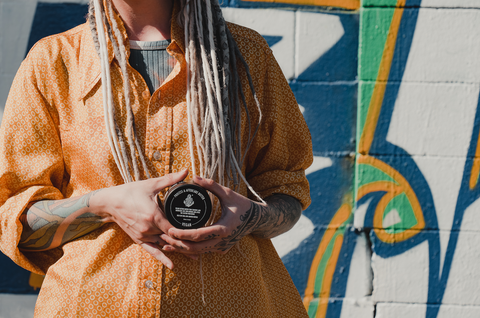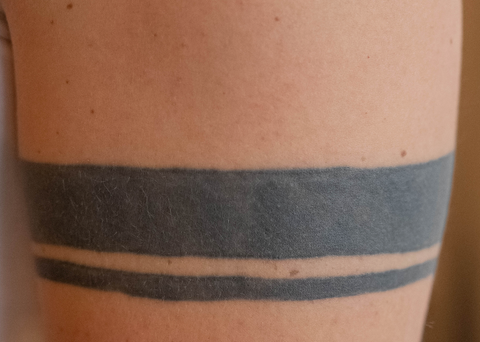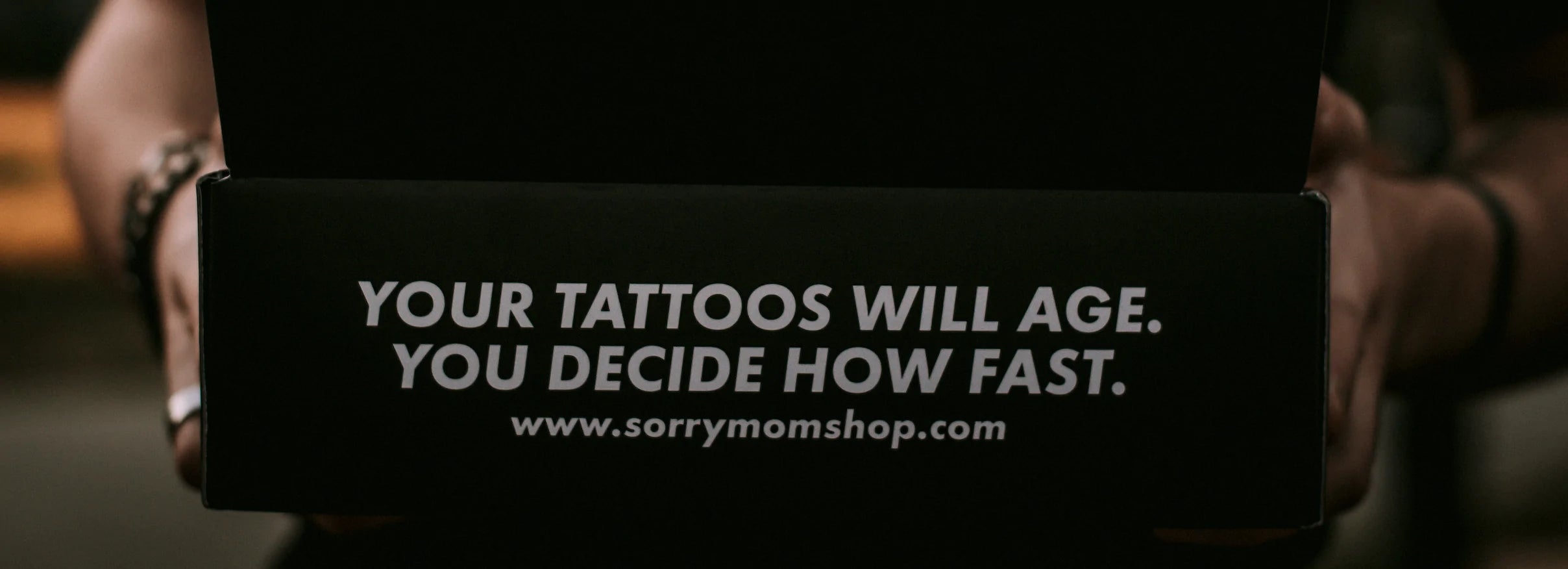If you are anything like us, you love and appreciate the artistry that goes behind tattoos. After hours of meticulous and skilful ability by the tattoo artist, these permanent works of art are incredibly special and personal to every individual.
While there is no doubt that tattoos done by artists are very much permanent, there is the question of how your tattoo will look a few years down the line. How do we avoid faded tattoos? This is a question we get a lot.
So, do tattoos fade? Without a doubt, your tattoos will eventually fade. Several reasons can affect the vibrancy of your tattoos: sun exposure, poor aftercare, friction or placement, just to name a few. Fortunately, we can slow down the process, and prevent our tattoos to fade as fast.
With experience, you probably have learned that caring for your tattoo does not simply end once your artist has finished his work.
Aftercare is critical for the longevity of your tattoo and these beginning stages after you have gotten your tattoo are extremely important.
What Causes Tattoo Fading? 5 Main Reasons
Many reasons cause tattoos to fade.
The good news is that there are preventable measures that can help slow the effects of fading to keep your tattoo looking fresh and vibrant for a longer time.
#1 Sun exposure
Excessive sun exposure without any sunscreen or protection will inevitably affect your tattoo. The sun’s UV-rays will invariably break down the pigment particles in your tattoo and cause it to lighten.

The next time you head out, be sure to apply sunscreen onto your tattoo.
#2 Poor aftercare
Immediately after your tattoo is complete, your tattoo artist should provide you with the information and products that you will need to care for your tattoo for at least a few weeks as it heals.
Ignoring these instructions and simply not following them diligently can affect the longevity of your tattoo’s vibrancy and appearance.
Some of the products recommended are the following:
Balm or butter to keep your skin moisturized and speed up the healing process.
Lotion to keep your tattoos bright and vibrant.
Tattoo foam soap to clean the tattooed area.
Protective tattoo film, to protect the area from bacteria.
Sunscreen for tattoos, to protect your tattoos from the sun.
#3 Excessive friction
Over exfoliation with products or excessive contact with clothing and the environment can have a huge impact on how your tattoo will look in the long run.
Athletes most commonly experience this from the equipment, uniforms, and constant contact that results in their tattoos being put through extreme conditions.
Read Also: Can I Workout After Getting a Tattoo?
#4 Weight gain affects skin elasticity
Sudden and extreme weight gain will have an immense effect on the elasticity of the skin and can distort the appearance of your tattoo.
The ink pigments will break down over time as your skin stretches, thus causing your tattoo to appear faded.
#5 Tattoo placement
Some parts of the body are more likely to turn bright, fresh tattoos into faded tattoos than others.
Places where the skin is thin and the blood circulation is not great due to its peripheral placement -like feet and hands-, are more likely to experience tattoo fading.
How Quickly Do Tattoos Fade?
Tattoos generally fade within days of their application as your epidermis acclimates to the pigments and creates a new layer of skin. As the dead skin is then shed, your tattoo will experience vibrancy. For the deeper layers of skin to fully heal, this can take months, but this also depends on its size, coloring, and how experienced your artist is.

This form of fading that appears after your tattoo has fully healed usually begins 6 months down the line, depending on the various environments and settings your tattoo is exposed to.
Do All Tattoos Fade?
Generally speaking, most tattoos undergo some fading over the years. Depending on the location of your tattoo, external factors like the environment can play a big role in your tattoos looking faded.
Several mitigating factors affect whether your tattoo will experience fading or not:
- Colored Tattoos
Colored tattoos tend to fade quicker, especially light colored and watercolor pieces because of the technique utilized. White tattoos fade the quickest out of all tattoos, especially when exposed to the sun.
- Black and Grey Tattoos
Black and grey tattoos tend to last longer in terms of vibrancy but will still experience fading over time.
- Artist's Experience Matters
Finding an experienced tattoo artist is crucial because their abilities can make or break the longevity of your tattoo’s appearance.

Having an experienced tattoo artist is also important for the aftercare and knowledge they impart to you to take care of your tattoo.
Where Do Tattoos Fade the Least?
While a big part of the joy of tattoos is the creative freedom you have with them, be wary that there are certain areas on your body that will be more susceptible to sunlight, thus causing your tattoo to fade faster.
Your environment, lifestyle, and the weather will have a direct impact on this as well.
- Areas like your ribs, outer collarbone, back, and upper thighs are good placements if you’re looking to conceal your tattoo under your clothes and protect it from the sun.
- Areas like your abdomen, feet, or anywhere that tends to crease like wrists are not as ideal if your goal is to protect your tattoo from exposure.

Keep this in mind when you are considering your tattoo and seek advice from your tattoo artist as they will be able to determine the best location for the tattoo to look its best for a long time.
How to Prevent Tattoo Fading
Tattoo aftercare is the most important step because it ensures the longevity of your tattoo and prevents any complications that can occur.
As soon as you get your tattoo, be sure to follow through with gently washing the area and moisturizing it with tattoo aftercare products.
Your tattoo will scab and the skin will flake, but this is normal
After your tattoo has healed, maintaining it is a matter of keeping the area clean and moisturized.

Be sure to stay hydrated and continue moisturizing your skin with gentle products. Sunscreen is also your best friend when it comes to preventing your tattoo from looking faded.
How to Fix Tattoo Fading
If you have followed through with all of the proper aftercare steps and continue to take care of your tattoo but still find fading to be an issue, there is always the option of touching up your work.
Restoring your ink is a common practice that most tattoo artists are willing to do.
This is a great way to refresh your pieces to get them looking brand-new again.
Bottom Line
When it comes to ink, the sky is the limit, which is why tattoos are viewed as such incredible works of art. Whether it’s your first time or if you are a veteran, maintaining your tattoos is incredibly important.
While fading is inevitable, there are several ways to ensure the vibrancy and longevity of your ink and following these tips will help your pieces withstand the test of time.





